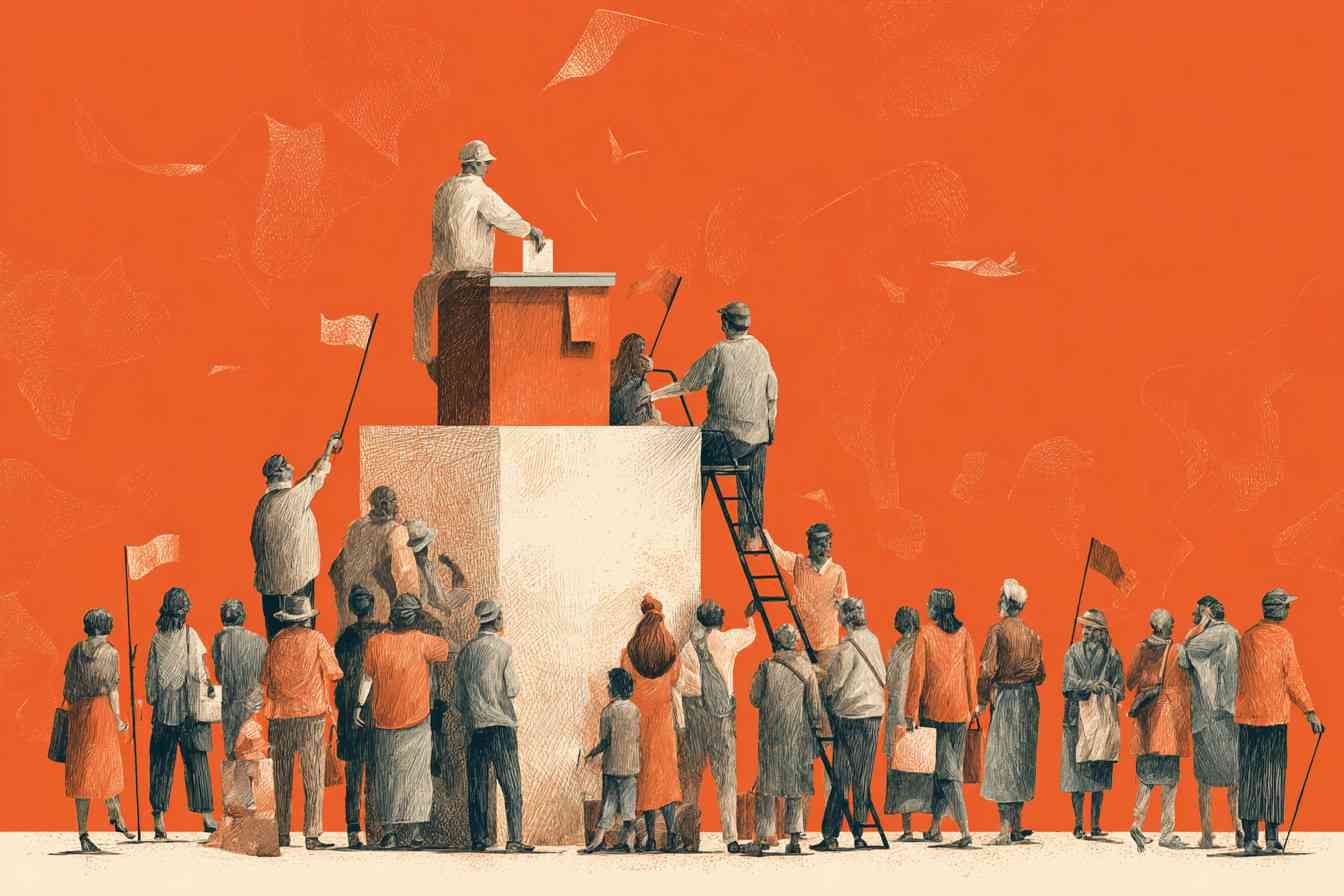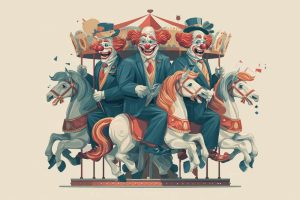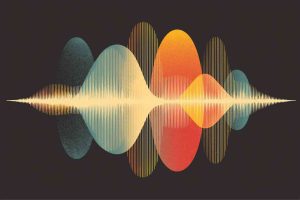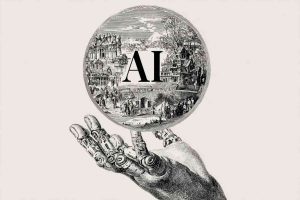The global myth of democracy: why no state truly deserves the label

The universal appeal of democracy
No political concept carries more weight in the modern world than democracy. Nearly every government claims it, regardless of how power is actually organized. The United States calls itself the beacon of democracy, the European Union frames democracy as its core value, and even authoritarian regimes such as Russia, Iran, or China wrap themselves in democratic rhetoric.
This is not accidental. Democracy today is the most powerful source of political legitimacy. To be called “undemocratic” is to invite suspicion, criticism, or even sanctions. As Larry Diamond observed, democracy has become “the only game in town” when it comes to legitimacy (Developing Democracy, Larry Diamond). Yet the near-universal claim is mostly illusion, because no state truly embodies popular rule.
The ancient roots and their limits
When modern states describe themselves as democracies, they often look back to Athens as the birthplace of the idea. Athens in the 5th century BCE had institutions where citizens gathered in the assembly, voted directly on laws, and held officials accountable. But even this most celebrated example was no pure democracy. Only adult male citizens could participate, excluding women, slaves, and foreigners, who made up the majority of the population (Democracy: A Life, Paul Cartledge).
Rome is sometimes presented as a “republican democracy, ” yet in reality its Senate was dominated by elites, and popular assemblies were controlled through patronage and coercion. Rome demonstrates how democratic forms can serve oligarchic interests, a lesson still relevant today (The Roman Republic, Harriet Flower).
These early models show that what is hailed as the foundation of democracy was already narrow, exclusionary, and dependent on hierarchy. If even the supposed origins of democracy excluded most people from rule, can any later state claim to have surpassed this structural problem?
Liberal democracies and the limits of representation
Modern democracies, especially in the West, are typically representative systems rather than direct ones. Citizens vote for representatives who legislate and govern on their behalf. This model developed in the wake of the American and French Revolutions, when mass direct participation was seen as impractical. Yet the reliance on representation creates distance between people and power.
Jean-Jacques Rousseau warned in The Social Contract that when citizens elect representatives, they effectively surrender their sovereignty: “The English people thinks itself free, but it is only free during the election of members of Parliament; as soon as they are elected, it is enslaved.” Rousseau’s observation still applies. Elections give the impression of popular power but do not secure it.
Even in highly regarded democracies such as the United States, policy outcomes often reflect elite interests rather than popular will. A famous study by Martin Gilens and Benjamin Page found that ordinary citizens have little to no independent influence on policy, while economic elites and organized interests dominate decision-making (Testing Theories of American Politics, Gilens & Page). If the core of democracy is rule by the people, such findings undermine the claim that the U.S. or any similar state truly deserves the label.
The role of constitutions and unelected power
Another obstacle is the role of constitutions and institutions designed to restrain direct popular power. Courts, central banks, military establishments, and international organizations frequently limit what elected governments can do. While these checks are often justified as protections against instability, they also reveal that sovereignty is not fully in the hands of citizens.
In the European Union, for example, vast areas of policy are made by unelected officials in the European Commission or by technocratic bodies like the European Central Bank. National parliaments and voters have little direct say in these crucial decisions (The Limits of European Integration, Andrew Moravcsik). Yet EU leaders insist that the Union embodies democracy and even chastise others for lacking it. The dissonance between rhetoric and reality could not be clearer.
The postcolonial promise and disappointment
In the aftermath of decolonization, many new states embraced the label of democracy to legitimize their sovereignty. Leaders from India to Ghana declared themselves committed to rule by the people. But in practice, democracy was often undermined by elite dominance, ethnic tensions, or military intervention.
India, for example, is the world’s largest electoral democracy, yet its system suffers from corruption, vote-buying, and caste-based exclusion (Democracy in India, Niraja Gopal Jayal). Ghana under Kwame Nkrumah initially held elections but soon slid into one-party dominance, justified as necessary for national unity (Africa: The Politics of Independence, Immanuel Wallerstein).
These cases show how democracy serves as a label to claim legitimacy, while the substance of governance departs from the principle of popular sovereignty.
Authoritarian states and the democratic mask
Even states with overtly authoritarian structures wrap themselves in the democratic label. China officially calls itself a “people’s democratic dictatorship, ” arguing that its one-party system represents the will of the people more effectively than Western systems. Russia calls its system “sovereign democracy, ” suggesting that democracy must be adapted to national traditions. Iran holds elections, but only candidates approved by religious authorities can stand.
Such examples highlight how elastic the term has become. By framing their rule as democratic, authoritarian governments exploit democracy’s legitimacy without adhering to its core meaning (Democracy Disrupted, Ivan Krastev).
The problem of scale and participation
Beyond manipulation of the term, there is a structural problem: true democracy may be impossible at the scale of modern nation-states. Direct citizen participation in decision-making is impractical in polities of millions or hundreds of millions of people. Digital technologies promise new forms of participation, but even online platforms often reproduce inequality and manipulation (Against Elections: The Case for Democracy, David Van Reybrouck).
The impossibility of direct participation at scale means that states rely on representation, bureaucracy, and elites. As Robert Michels argued in Political Parties, all organizations tend toward oligarchy, because decision-making becomes concentrated in the hands of a few. This “iron law of oligarchy” explains why even well-designed democratic systems slide into elite rule.
The persistence of inequality
Democracy is not only about formal institutions but also about equality of influence. Yet modern democracies are marked by vast inequalities in wealth, education, and access to power. Campaign finance in the United States ensures that moneyed interests dominate elections. In many European democracies, lobbyists shape legislation behind closed doors. In the Global South, poverty and clientelism restrict meaningful participation.
Thomas Piketty’s research in Capital in the Twenty-First Century shows how economic inequality translates into political inequality. When wealth is concentrated, democracy cannot be genuine, because influence follows money. This dynamic reinforces the argument that no state can truthfully be called democratic.
Democracy as a performance
If democracy does not truly exist in practice, why do states insist on claiming it? The answer lies in legitimacy. Citizens want to believe they are free and sovereign, and democracy provides the language for that belief. Governments adopt the performance of elections, constitutions, and parliaments to reassure both domestic and international audiences.
But as Jacques Rancière argued in Hatred of Democracy, the concept has been emptied of substance and turned into a ritualized performance. Citizens vote, politicians campaign, but fundamental structures of power remain untouched. The label of democracy is kept because it legitimizes the state, not because it reflects reality.
Toward a sober understanding
None of this means democracy is meaningless or irrelevant. Popular participation, elections, and accountability are better than open dictatorship. But the claim that any modern state is truly democratic is misleading. At best, states approximate certain democratic ideals while simultaneously limiting and distorting them.
Acknowledging this gap is essential. If democracy is treated as an accomplished fact, there is no pressure to deepen participation or reduce inequality. But if democracy is seen as an unrealized aspiration, citizens may demand more than symbolic rituals of voting.
The contradiction at the heart of the modern state
Every state that claims to be democratic rests on a contradiction. On the one hand, democracy is invoked as the source of legitimacy. On the other hand, the structures of power that define modern governance, bureaucracy, representation, economic inequality, elite capture, undermine democracy at its core.
This contradiction explains why no state truly deserves the label. Democracy exists more as a powerful myth than as a lived political reality. States use the word to cloak themselves in legitimacy, but the people, in whose name democracy is proclaimed, rarely hold actual power.
The myth persists because people want to believe in it. But recognizing the myth is the first step toward confronting the real distribution of power in society.
Direct democracy: instruments and possibilities
Although the referendum is often seen as the key instrument of direct democracy, history shows that there are several ways for citizens to exercise direct influence. These traditional instruments remain valuable, but in the digital age they can be made much more powerful. In addition, modern technology creates entirely new opportunities to take citizen participation to a higher level.
Traditional instruments of direct democracy
Referendum
The binding referendum is the best-known example: citizens vote directly on a law or policy measure. In Switzerland this is a standard practice that gives citizens real influence (Direct Democracy in Switzerland, Gregory Fossedal).
Popular initiative
Through the popular initiative, citizens themselves can propose legislation if they collect enough signatures. This instrument makes citizens not only controllers but also active agenda setters (The Will of the People: A Modern Myth, Bernard Yack).
Recall
In some U.S. states, citizens can remove elected representatives from office before the end of their term. This strengthens control over power and prevents politicians from feeling untouchable during their mandate (Democracy in America, Alexis de Tocqueville).
Popular assembly
In antiquity (Athens) and in some Swiss cantons (Glarus, Appenzell), citizens gathered physically to make decisions. This works mainly in small communities but remains the purest form of direct people’s power (Origins of Democracy in Ancient Greece, Josiah Ober).
Plebiscite
A plebiscite is a popular vote often initiated by a ruler. It is less independent than a referendum, but still a form of direct input from the population (The Life and Death of Democracy, John Keane).
Improved through modern technology
These classical instruments can be made far more efficient and accessible through digital means:
- Digital referendum: secure online voting makes it possible to hold referenda more frequently and at lower cost, even on smaller policy issues. Blockchain technology can provide transparency and protection against fraud (Blockchain and the Law, Primavera De Filippi).
- Online popular initiative: instead of physical signatures, citizens can express support digitally, in a process that is directly verifiable and public (Against Elections, David van Reybrouck).
- Digital recall: citizens can signal through online platforms that they have lost confidence in a representative. If sufficient support is gathered, this can automatically trigger a new election (The Recall of Public Officials, Joseph Zimmerman).
- Virtual assemblies: digital platforms allow citizens to debate and submit amendments. Through livestreams and interactive voting rounds, the deliberative quality can be enhanced (Deliberative Democracy and Beyond, John Dryzek).
- E-democracy platforms: plebiscites can be organized digitally in a way that makes them more transparent and accountable, ensuring they do not remain merely a ruler’s tool (Electronic Democracy: Mobilisation, Organisation and Participation via new ICTs, Rachel Gibson).
New possibilities in the digital age
In addition to enhanced classical instruments, technology makes new forms of direct democracy possible:
- Continuous polls and citizen panels: through apps, citizens can express their preferences continuously, making policy more flexible and attuned to society (When the People Speak, James Fishkin).
- Online participatory budgeting: citizens decide digitally on the allocation of parts of the government budget, with immediate insight into the consequences of their choices (Participatory Budgeting, Yves Sintomer).
- Transparent policymaking: digital platforms can make every step of policymaking (proposals, amendments, debates, votes) visible to citizens, preventing decisions from being made behind closed doors (Smart Citizens, Smarter State, Beth Simone Noveck).
- AI-assisted participation: artificial intelligence can help organize and summarize millions of voices and opinions without diminishing human decision-making (Artificial Intelligence: A Guide for Thinking Humans, Melanie Mitchell).
- Decentralized decision-making via blockchain: blockchain can provide an infrastructure for secure and tamper-proof citizen decisions, strengthening trust in outcomes (The Truth Machine: The Blockchain and the Future of Everything, Michael Casey).
Toward a real democracy
The classical instruments of direct democracy were always limited by scale, cost, and organization. In the digital age, those limits no longer exist. Citizens can participate in decision-making easily and securely, on a large scale and with a high level of transparency.
This means that the often-heard claim that “real democracy is impossible at the state level” is outdated. With today’s technology, people’s power can not only exist, but function better than ever before.


















